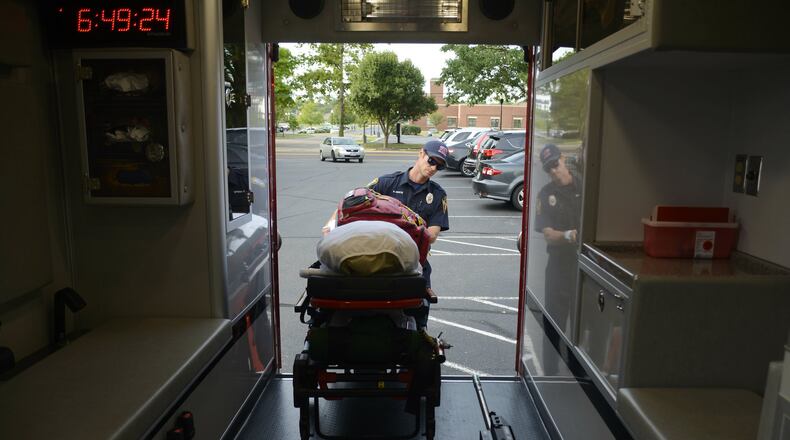For the past two legislative cycles, the Republican from Hamilton has tried to get Ohio to join the Health Care Compact — which currently includes nine states — and Retherford said he "was inches away" from a Senate floor vote at the end of the 131st General Assembly in December. He said the Senate "just ran out of time" despite the bill making it out of the Senate Government Oversight and Reform committee.
“The basic concept of the Health Care Compact is what President-elect Trump has basically been talking about for a while, which is block grants back to the states and let them run the health care system,” said Retherford.
Retherford doesn’t know if this will be the “replace” part of congressional Republicans’ efforts to repeal and replace Obamacare but he thinks it should. The compact would avoid a “one size fits all” approach to health care, he said.
“What is good for Ohio is not always good for California,” he said. “It’s hard to have a national plan.”
The Health Care Compact is a proposed interstate compact that gives member states the authority, and responsibility, for health care regulations in their respective states, except for military health care. Each state would be able to spend federal grants on health care programming.
Any interstate compact, such as this one for health care, must be approved by a simple majority in Congress, which an attempt had been made with a House Joint Resolution in May 2015, but it failed to make it out of the House Judiciary committee.
The downsides to the Health Care Compact: it cannot be amended unless all participating states agree, the federal guarantee match to state Medicaid spending would be eliminated and states would be ineligible for one-time entitlements like the 2009 stimulus, Anne Dunkelberg, associate director of the Austin-based Center for Public Policy Priorities, told the Washington Post and Kaiser Health News.
"We have 3 million people in Medicare and another 4 million on Medicaid and (the Children's Health Insurance Program)," Dunkelberg said. "Just now (in Texas) we're $600 below the national average per person for Medicaid."
Sen. Sherrod Brown, D-Ohio, said the block grant is just another word for cut.
“Cutting Medicare, cutting the Children’s Health Insurance Program and taking healthcare away from Ohio seniors and kids,” Brown said.
Though Obamacare, also known as the Affordable Care Act passed in 2010, has its critics, more people signed up this year than last year, including in Ohio. Roughly 6.4 million people — including more than 165,000 Ohioans — signed up by the Dec. 19 deadline, which includes more than 2 million new consumers, according to the U.S. Department of Health and Human Services.
The idea of a health care compact is likely to be supported by the Trump Administration:
- Vice President-elect Mike Pence's home state of Indiana joined the compact in 2012;
- Health and Human Services secretary nominee Congressman Tom Price's home state of Georgia joined in 2011; and
- Attorney General nominee and U.S. Sen. Jeff Sessions' home state of Alabama joined in 2013.
Retherford has pushed the bill with former Ohio Rep. Terry Boose, R-Norwalk, since 2014, introducing the legislation in the 130th and 131st general sessions.
As the new two-year General Assembly convened this week, Retherford hopes this bill is approved quickly, and one of the first bills introduced. It was approved mostly along party lines, 61-31, when it passed in 2015.
If it is passed in the 132nd General Assembly, Retherford said “you’ll see other states come along pretty quickly.” There are about a dozen other states that have considered similar legislation.
Retherford said as health care costs and premiums increase, “now is the best time as ever to move forward to a state-based solution that brings about cheaper health care costs and keep cheaper insurance costs.”
“The goal of everyone having health care is a noble one, but that goal is not achieved with the affordable care act,” he said.
About the Author

